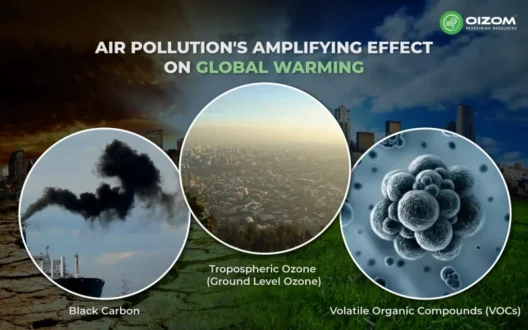In an age characterized by rapid industrialization and urban sprawl, the imperative to conserve energy and heal the planet has never been more urgent. As climate change escalates and natural resources dwindle, our collective responsibility as stewards of the Earth comes into sharper focus. Addressing energy consumption is not merely about mitigating environmental degradation; it is about safeguarding the future of our planet for generations to come. This discourse seeks to elucidate various methodologies through which individuals and communities can contribute to energy conservation and ultimately, environmental rejuvenation.
First and foremost, understanding the significance of energy conservation is essential. Energy consumption directly correlates with greenhouse gas emissions, which are pivotal in exacerbating global warming. The burning of fossil fuels for electricity and heat remains one of the primary culprits behind atmospheric carbon dioxide increases. By reducing energy consumption, we can lower these emissions, thus contributing to a more stable climate. This reality presents an opportunity for us to engage more consciously with our energy use.
One of the most effective ways to reduce energy consumption is through the adoption of energy-efficient appliances. The market now offers a myriad of products that utilize significantly less energy than traditional models. For instance, LED lighting consumes up to 75% less energy than incandescent bulbs and lasts much longer. By replacing outdated appliances with energy-efficient alternatives, we can reduce our electricity bills and decrease our carbon footprint simultaneously. Furthermore, seeking products with the ENERGY STAR certification ensures that the appliances meet stringent efficiency guidelines.
Equally important is the role of insulation in energy conservation. Properly insulating homes can lead to remarkable reductions in energy expenditures related to heating and cooling. Inadequate insulation allows an exodus of warmth during winter and a significant influx of heat during summer months. By upgrading insulation in attics and walls, we can maintain a stable indoor climate, significantly reducing reliance on heating and cooling systems.
Additionally, consider the potential benefits of renewable energy sources. Solar panels, wind turbines, and geothermal systems offer sustainable alternatives to fossil fuels. Installing solar panels not only reduces dependence on non-renewable resources but can also lead to financial savings over time through lower energy bills and potential tax incentives. Moreover, advocating for community solar initiatives can provide collective benefits, enabling participation from those who may not have the means to install their own systems. Harnessing the power of the wind or the earth’s heat can play a pivotal role in diminishing our reliance on traditional energy sources.
In the realm of transportation, energy conservation can be approached through a multifaceted strategy. Transitioning to public transport systems can dramatically diminish individual carbon footprints. Buses and trains consume less energy per passenger mile compared to personal vehicles. Moreover, embracing alternatives such as cycling or walking not only conserves energy but contributes to physical well-being, fostering healthier communities.
For those who continue to use personal vehicles, adopting practices such as carpooling, maintaining optimal tire pressure, and choosing fuel-efficient vehicles can yield substantial benefits. Furthermore, supporting infrastructure for electric vehicles (EVs) can encourage their adoption, which, over time, can significantly reduce vehicular emissions. Establishing a robust network of charging stations for EVs is vital as it enhances accessibility, encouraging more individuals to make the switch.
In addition to individual actions, corporate responsibility and policy advocacy are paramount. Large corporations are significant energy consumers and have the potential to influence substantial change. Encouraging businesses to adopt energy-efficient practices and invest in sustainable technologies can exponentially increase energy savings. Furthermore, supporting legislation that prioritizes renewable energy investments and emissions reductions can drive systemic change. Grassroots movements, alongside institutional advocacy, can amplify the call for policies that prioritize environmental health and energy conservation.
Education plays a crucial role in fostering an environmentally-conscious society. Awareness campaigns that elucidate the importance of energy conservation can assertively engage communities. Schools and educational institutions should emphasize sustainability, teaching younger generations the importance of reducing their environmental impact. Campaigns that promote energy-saving habits—like turning off lights when leaving a room or unplugging devices when not in use—can imbue a sense of responsibility towards energy conservation from an early age.
Lastly, cultivating a culture of conservation within communities can lead to collective action. Community programs that focus on sustainability practices—such as tree planting, community gardens, or energy audits—can unite individuals with a common purpose. Encouraging participation in local environmental initiatives not only enhances community spirit but also illustrates the tangible impact of conservation efforts.
In conclusion, the quest to conserve energy and heal the planet necessitates a multifaceted approach that encompasses individual actions, community efforts, and systemic change. By making informed choices, advocating for renewable energy, and committing to sustainable practices, each of us can contribute to a healthier, more sustainable environment. As we confront the formidable challenges posed by climate change, it is imperative that we recognize the interconnectedness of our actions and their far-reaching consequences. The path forward not only requires the adoption of innovative solutions but also the unwavering commitment of individuals, communities, and governments to foster a planet that future generations will inherit in a flourishing state.








